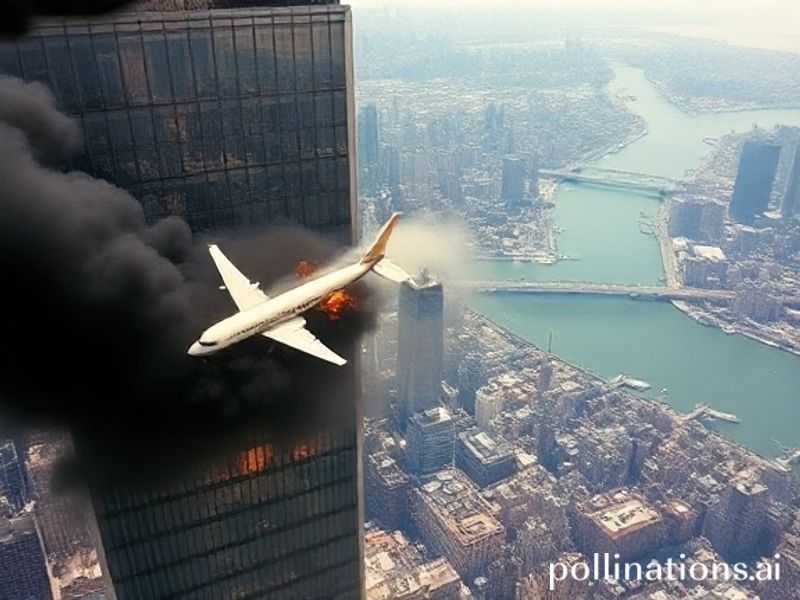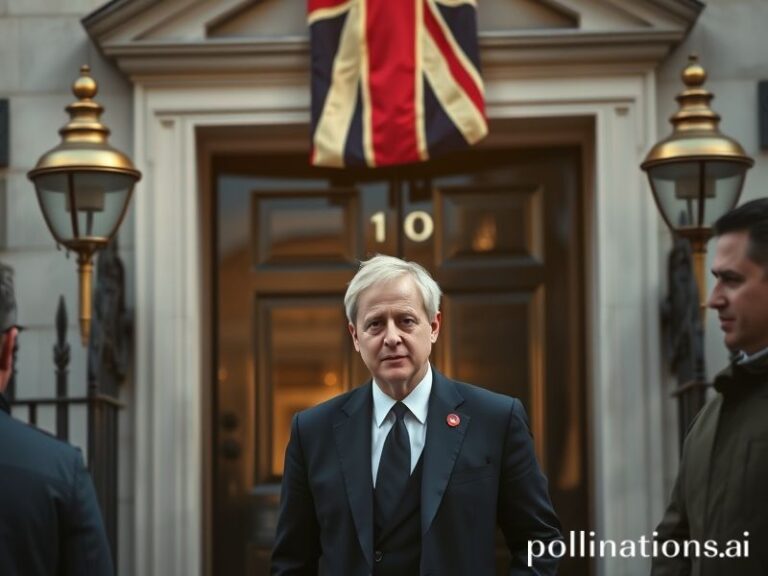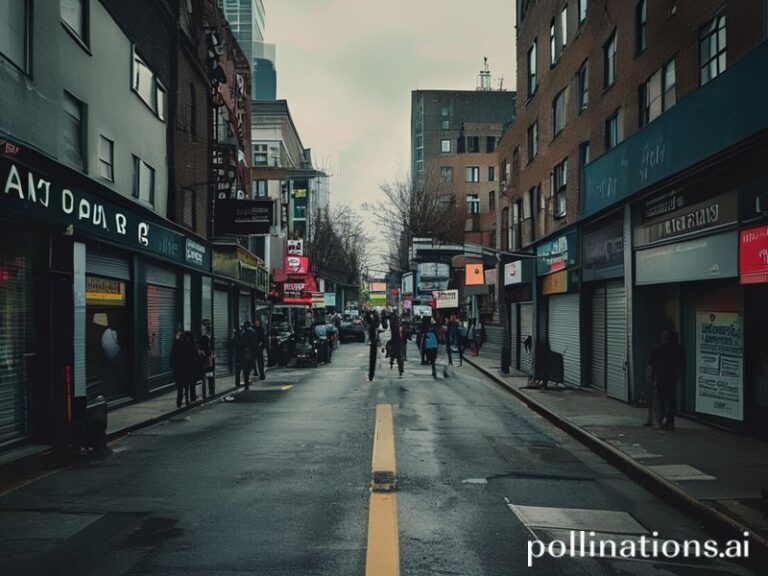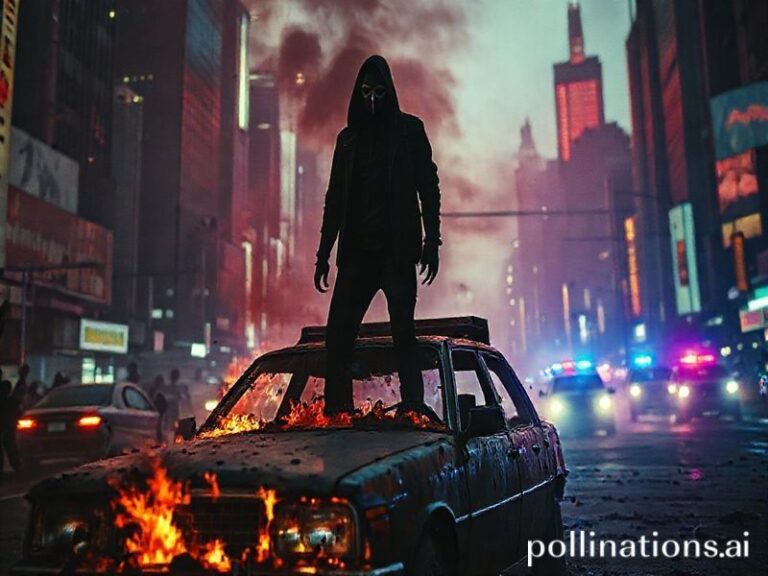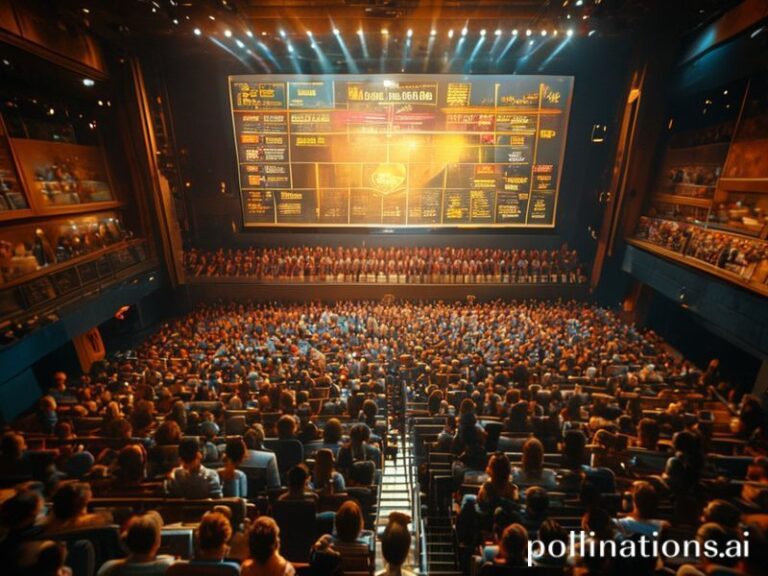9/11 From Abroad: How the World Learned to Stop Worrying and Love the Security Theater
9/11/01: The Day the World Got a New Calendar
By the time the second plane hit, foreign newsrooms had already stopped pretending it was an accident. In London, editors watched the feed with the grim satisfaction of people who’d warned the Americans for decades that their skyscrapers were basically vertical bullseyes. In Moscow, vodka glasses paused mid-clink—Russia had been there, done that, got the Chechen souvenir scars. In Tokyo, salarymen glanced up from their bento boxes, recognized the choreography, and quietly returned to their spreadsheets: the world’s most polite “told you so.”
The attacks were technically domestic, yet their true audience was global. Al-Qaeda’s production values—crisp 4K, multiple angles, Dolby screams—were tailored for a planet already addicted to disaster porn. By nightfall, candlelight vigils flickered from Paris to Pretoria, proving humanity’s most consistent talent: turning tragedy into Instagrammable solidarity. Meanwhile, the Dow coughed up $1.4 trillion faster than a frat boy after tequila shots, reminding everyone that markets feel emotions too—mostly fear and greed, in that order.
Washington responded with the subtlety of a chainsaw at a wine tasting. NATO invoked Article 5 for the first time ever—collective defense, like a bar fight where everyone piles in because one guy got sucker-punched. Suddenly, obscure hamlets in Afghanistan became household names, and “coalition of the willing” entered the diplomatic lexicon as a polite euphemism for “countries hoping to stay on America’s Christmas card list.” France initially demurred, earning cafeteria fries a rebrand to “freedom potatoes,” because nothing says mature geopolitics like renaming lunch.
The ripple effects were delightfully absurd. Airport security discovered the theatrical potential of shoe removal, liquid bans, and pat-downs so intimate they required dinner first. The EU harmonized its terror-alert color charts, ensuring Europeans could panic in seven languages simultaneously. Meanwhile, Beijing quietly upgraded its Great Firewall, noting that if Saudi pilots could weaponize box cutters, Chinese netizens might weaponize Google.
Economically, 9/11 handed neoliberalism its own noose. The U.S. printed money like it was going out of style (spoiler: it was), launching two wars on the national credit card and teaching the world that superpowers, too, can max out their limits. China watched, took notes, and built islands instead—cheaper than carrier groups, and the sea doesn’t file casualty reports. The Eurozone, still digesting its new currency, realized that terrorism was bullish for defense stocks and bearish for civil liberties, a trade-off markets metabolized with reptilian indifference.
Culturally, irony died—or so we were told—only to be resurrected as algorithmic clickbait. The West discovered that existential dread pairs well with consumerism; hence “Never Forget” became a branding opportunity. Elsewhere, the Global South shrugged: 3,000 dead was a Tuesday in Congo, but hey, now CNN cared. Bin Laden, a man who’d studied economics, achieved peak ROI: $500,000 in flight lessons yielded two decades of geopolitical chaos, proving that venture capital works best when your investors don’t mind dying.
And yet, for all the horror, there was a perverse unity. The French newspaper Le Monde declared “We Are All Americans,” a sentiment that lasted roughly until the Iraq invasion, when it quietly updated to “We Are All Skeptics.” Moscow offered intel it later weaponized for annexations. Even Tehran held candlelight vigils—then promptly labeled the U.S. “the Great Satan” again once the sympathy invoices cleared. Turns out solidarity has a half-life shorter than polonium-210.
Twenty-plus years on, the Twin Towers have been replaced by One World Trade Center—taller, glassier, and equipped with anti-aircraft missiles disguised as modern art. The world, meanwhile, is still stuck in the sequel nobody asked for: drone strikes, biometric passports, and conspiracy theories so elaborate they require their own PhD programs. The calendar flipped, but the plot didn’t; we’re all extras in a revenge drama with no final act.
So here’s to September 11, 2001—the day globalization got personal, irony got a mortgage, and humanity learned that the fastest way to unite the planet is to give it a common enemy. Cheers. Just don’t bring liquids through security.

